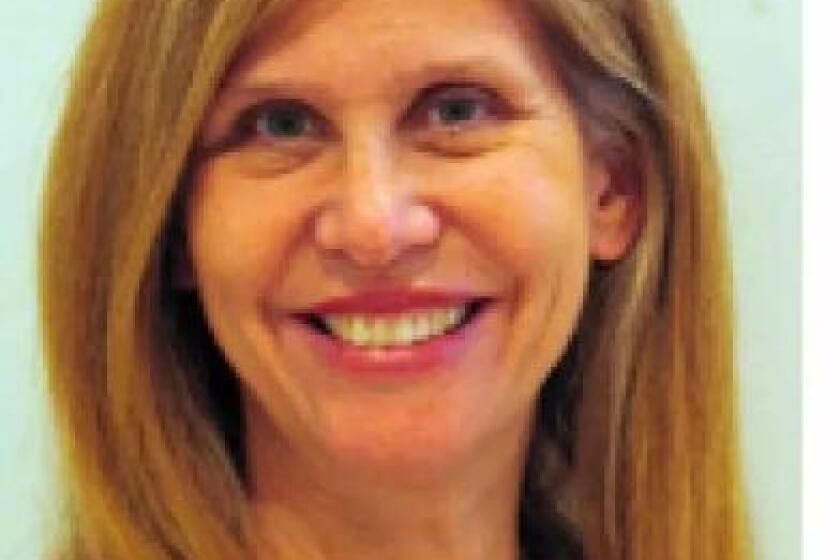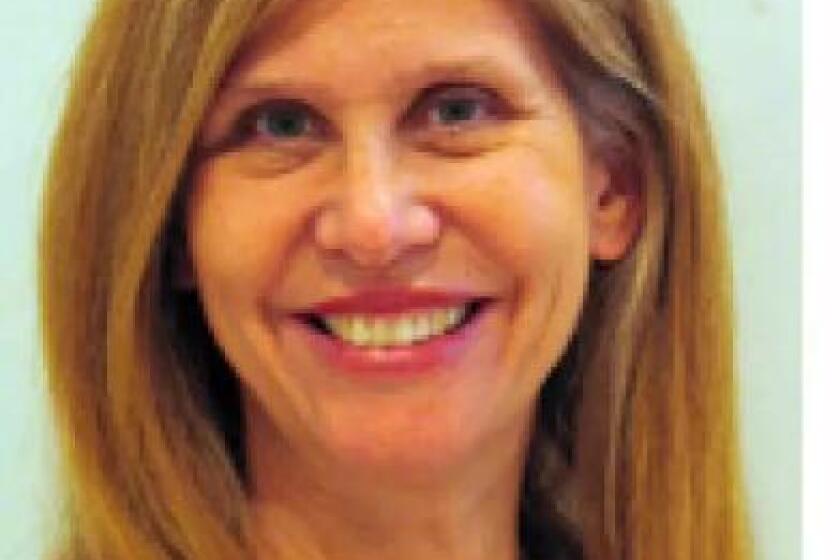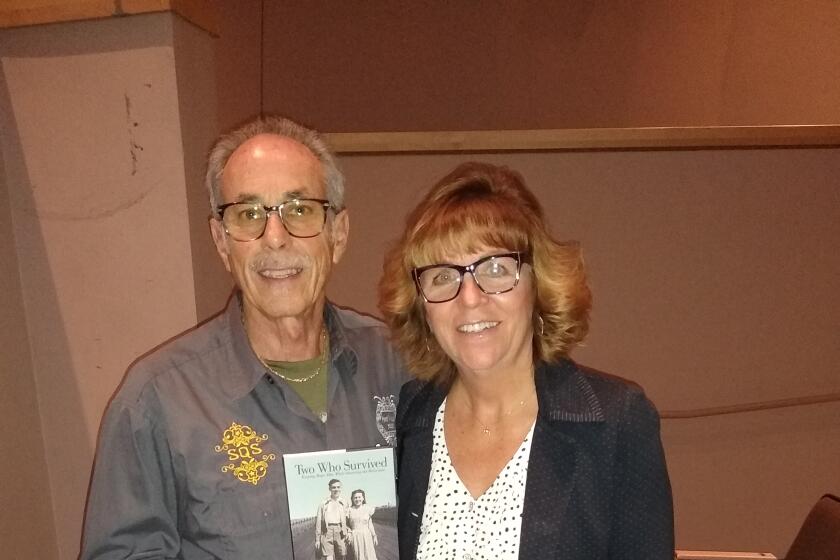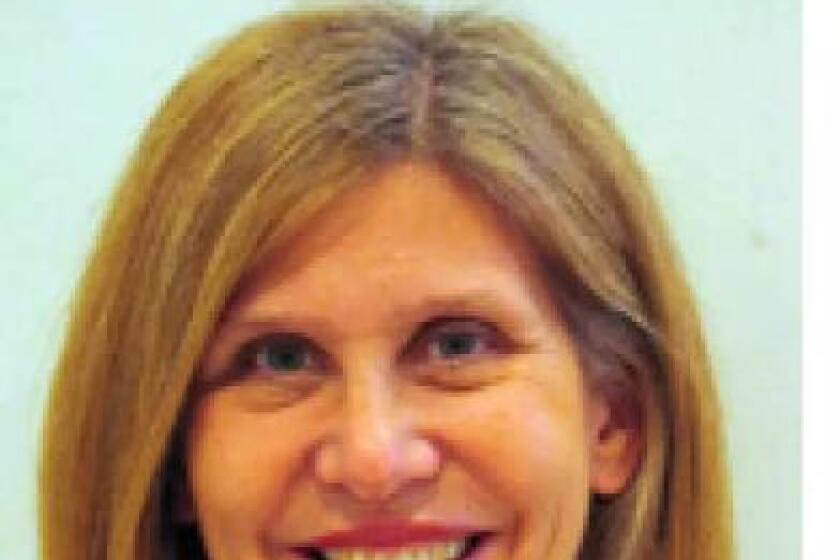Education Matters: Parkland students still passionate about gun control
Wearing their “March For Our Lives” T-shirts, former Marjory Stoneman Douglas High School students Sofie Whitney and Brendan Duff were featured at an event held at the Lawrence Family Jewish Community Center in La Jolla on June 2.
Whitney and Duff came to San Diego to discuss the student-led movement against gun violence and took part in an informal conversation with moderator Jordan Harrison, senior director of programs at the non-profit Reality Changers.
Following the shooting at the Parkland, Florida high school last year on Feb. 14 that killed 17 and injured 17 more, MSD students, many too young to vote, organized one of the largest marches in history and ignited a revolution among young people aimed at bringing awareness to America’s easy access to guns and the marked increase in gun violence in recent years.
“We need to act with the urgency this issue deserves,” said Duff, 21, who graduated from MSD in 2016.
He said the biggest enemies of their movement are apathy and complacency.
Whitney agreed, saying the hardest part of the work is getting people to care if they are not personally affected.
Duff said the focus is not just school shootings, that there’s not just one kind of gun violence. He cited suicides and violence on the streets of America’s major cities, mentioning Chicago and Baltimore.
The movement demands a broader discussion of society’s ills and mental illness, said Whitney, 19, who was a senior at MSD when the shootings occurred.
Whitney, who will start her sophomore year this fall at the University of Central Florida, recounted her experience at the school during the shooting.
“I sat there and hoped that we wouldn’t die,” she said.
Duff, whose brother was a ninth-grader at the school that day and survived the shooting, said knowing his brother was there and realizing that everyone had someone there they cared about, was “enough to make me throw myself into this work.”
Parkland, Duff said, had been voted one of the top five safest cities in Florida. “So I thought this can’t happen here,” he said. “But it shouldn’t happen anywhere.”
Both acknowledged that it’s often difficult to engage in conversations with those who believe the movement wants to take away their guns.
Duff said the movement’s founders and activists toured the country last summer and held rallies, which were often a draw for counter-rallies. Those counter-rallies, he said, were attended by many people carrying guns.
But the movement is not about taking away the right to own guns, Duff said.
“We try to find common ground,” he said, adding that opponents often find they agree with seven of the movement’s 10 policy points. [See the March For Our Lives website -- https://marchforourlives.com/ -- for a list of the 10 policy points.]
“Our agenda is just to save lives and create a safer America,” he said.
“We all want to be safe,” Whitney said. “There’s an information gap, and we need to find a bridge.”
She said creating relationships is important and “you have to listen to people” – even those with whom you disagree.
“The gun culture is rampant across the country,” said Whitney. She said she was raised in a different culture and had to learn to understand that many citizens have grown up around guns and it’s an integral part of their lives.
Safe storage
Asked about the push to arm teachers, Duff and Whitney were united in opposition.
“It sounds like they’re trying to sell more guns,” and we don’t need more guns in schools, Whitney said, to audience applause. What’s needed, she said, are more mental health resources at high schools, because “kids are depressed and anxious.”
“It seems totally backwards, that the solution to gun violence is to add more guns,” Duff said.
Whitney said it’s too easy to purchase a gun. “Getting a gun needs to be a more difficult process,” she said.
Every country struggles with mental health issues but not every country struggles with gun violence, said Duff, who blamed America’s “quick and easy access” to guns.
He said we need outlets beforehand for people with mental illness and anger management issues.
“No one is born wanting to commit violent acts,” Whitney said. Safe spaces are needed so people don’t turn to violence, she said.
To stop copycat crimes, Duff also advocated for media outlets to stop providing shooters with the notoriety they seek.
“Overnight you can go from a nobody to a somebody,” he said, noting that it’s been “consistently shown to incite more violence” when the media name shooters and show their photos.
Duff said the midterm elections were a high point for the movement, with many more young people voting than in previous years.
He added that there are now more than 250 March For Our Lives chapters in the country, including one in San Diego.
Targeting politicians who take money from gun lobby groups like the NRA has been a goal. But many other objectives are part of the movement’s platform.
Safe storage is one.
Whitney said too often kids accidentally shoot themselves or others because of easy access to unsecured guns in the home.
The Sandy Hook tragedy, said Duff, is one example of a shooter with access to guns in the home which were used to kill 20 kindergarten and first-grade students and six adults in 2012.
A proposed safe storage law is headed to the San Diego City Council. According to the city attorney’s office, as reported by the San Diego Union-Tribune, just 54 percent of gun owners with children in the home secure their firearms.
Local resolutions
Whitney said the main focus of March For Our Lives is to register people to vote, as this statement on the group’s website illustrates: “Our country needs young voters now more than ever – because voting is the most important way we can hold our leaders accountable.”
The website includes a list of mayors across the country who have signed on and agreed to take the pledge “to dedicate resources to supporting a day of voter registration in every high school and college in your city, and have your name used by March For Our Lives.”
Participating mayors include San Diego Mayor Kevin Faulconer.
In the wake of the Parkland killings, many local school districts drafted resolutions condemning increased gun violence in our schools.
Resolutions passed by San Diego Unified, San Dieguito Union, Cardiff, Encinitas, Solana Beach and other school districts included language calling for an outright ban of “semi-automatic firearms, high-capacity magazines, armor-piercing ammunition, bump stocks, and any other equipment, alteration, or modification that would increase a firearm’s capacity for ammunition or rate of fire.”
Yet not the Del Mar Union School District school board.
Hesitation, and ultimately refusal, to support strong language resulted in a watered-down version of the resolution that passed by a vote of 4-1 – with trustee Scott Wooden opposed because he felt the tamer version was still too strong.
Kristin Gibson, just elected to the San Dieguito board, was DMUSD board president at the time.
Under fire, so to speak, for their lack of enthusiasm to support a strong resolution, DMUSD trustees faced heavy criticism from gun control advocates and community members who wanted to see the board take a decisive stand against gun violence.
People must be held accountable, and voters concerned about this issue need to back elected officials who are willing to stand up to powerful pro-gun lobbies and go on record as supportive of efforts to curb gun violence.
Our recurrent mass shooting tragedies are an international disgrace and an appalling legacy to leave to our children. Resolutions don’t change the law, granted. Yet resolutions represent an important step in affirming policy positions of communities.
Glimmer of hope
A new book written by 25 of the founders of the March For Our Lives movement, including Duff and Whitney, is titled Glimmer of Hope: How Tragedy Sparked a Movement.
The book consists of personal essays, speeches, photographs, and an account of the launch of the movement. All proceeds from book sales go toward the March For Our Lives Action Fund.
Whitney said challenges exist for young people when speaking with politicians, who tend not to take them seriously because of their age.
But she insisted that the legitimacy of their arguments wins the day.
“Nothing scares an adult more than a bunch of kids who know exactly what they’re talking about,” she said.
The end game, Whitney said, is when there’s no more work to be done.
— Opinion columnist and Sr. Education Writer Marsha Sutton can be reached at suttonmarsha@gmail.com
Get the Del Mar Times in your inbox
Top stories from Carmel Valley, Del Mar and Solana Beach every Friday for free.
You may occasionally receive promotional content from the Del Mar Times.




